Biden assumes presidency at Capitol saying 'democracy has prevailed'
He immediately addressed the assault on the Capitol two weeks ago to the day.
Joe Biden took the oath of office just before noon on a cold but bright and sunny Wednesday at the U.S. Capitol, becoming the 46th president of the United States, the culmination of a nearly 50-year career in politics and a lifetime of tragedy and triumph.
"This is America's day. This is democracy's day," Biden began in his inaugural address, immediately addressing the assault on the Capitol that took place in the same spot where he was speaking two weeks ago to the day.
"We've learned again that democracy is precious. Democracy is fragile. And at this hour, my friends, democracy has prevailed," he said.
"So now, on this hallowed ground, where just a few days ago violence sought to shake the Capitol’s very foundation, we come together as one nation under God, indivisible, to carry out the peaceful transfer of power as we have for more than two centuries," he continued. "As we look ahead in our uniquely American way, restless, bold, optimistic, and set our sights on the nation we know we can be and we must be."
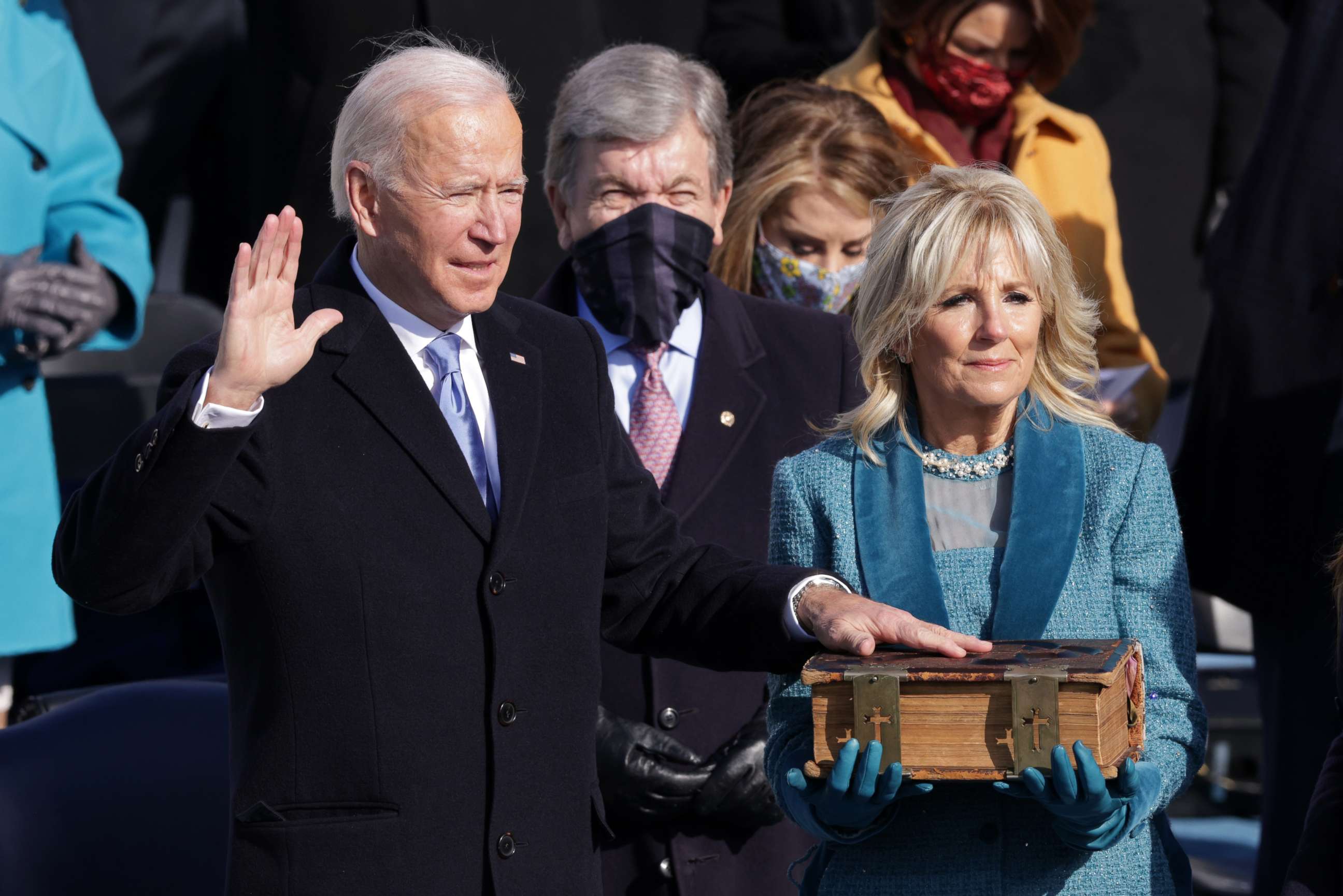
Speaking to the political divisiveness in the country, and continuing the message of unity he built his campaign on, he said, "We must end this uncivil war."
Noting how torn the nation is, and the challenge he now faces to repair the damage, he said, "We’ll press forward with speed and urgency, for we have much to do in this winter of peril and significant possibilities. Much to repair, much to restore, much to heal, much to build, and much to gain. Few people in our nation's history have been more challenged or found a time more challenging or difficult than the time we're in now."
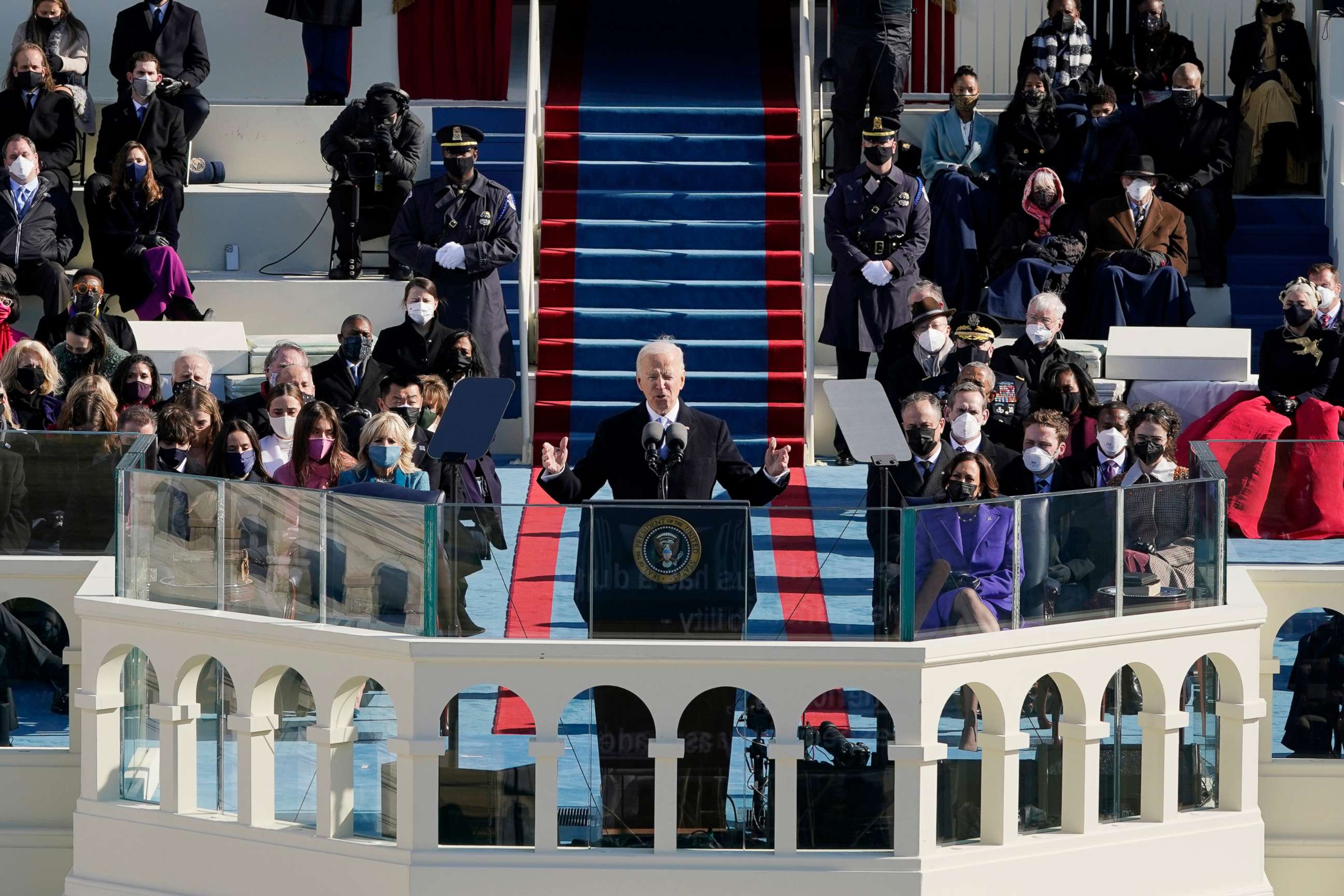
In a speech that stood in sharp contrast to his predecessor's talk of "American carnage," Biden quoted Abraham Lincoln, before committing to devote his time in office to uniting the nation.
"To overcome these challenges, to restore the soul and secure the future of America, requires so much more than words," he said. "It requires the most elusive of all things in a democracy, unity. Unity. In another January, on New Year's Day in 1863, Abraham Lincoln signed the Emancipation Proclamation. When he put pen to paper, the president said, and I quote, “If my name ever goes down into history, it’ll be for this act, and my whole soul is in it."
"My whole soul is in it," Biden repeated. "Today, on this January day, my whole soul is in this: bringing America together, uniting our people, uniting our nation. And I ask every American to join me in this cause."
He also recognize the historic nature of Kamala Harris being sworn in as the nation’s first woman and South Asian woman as vice president.
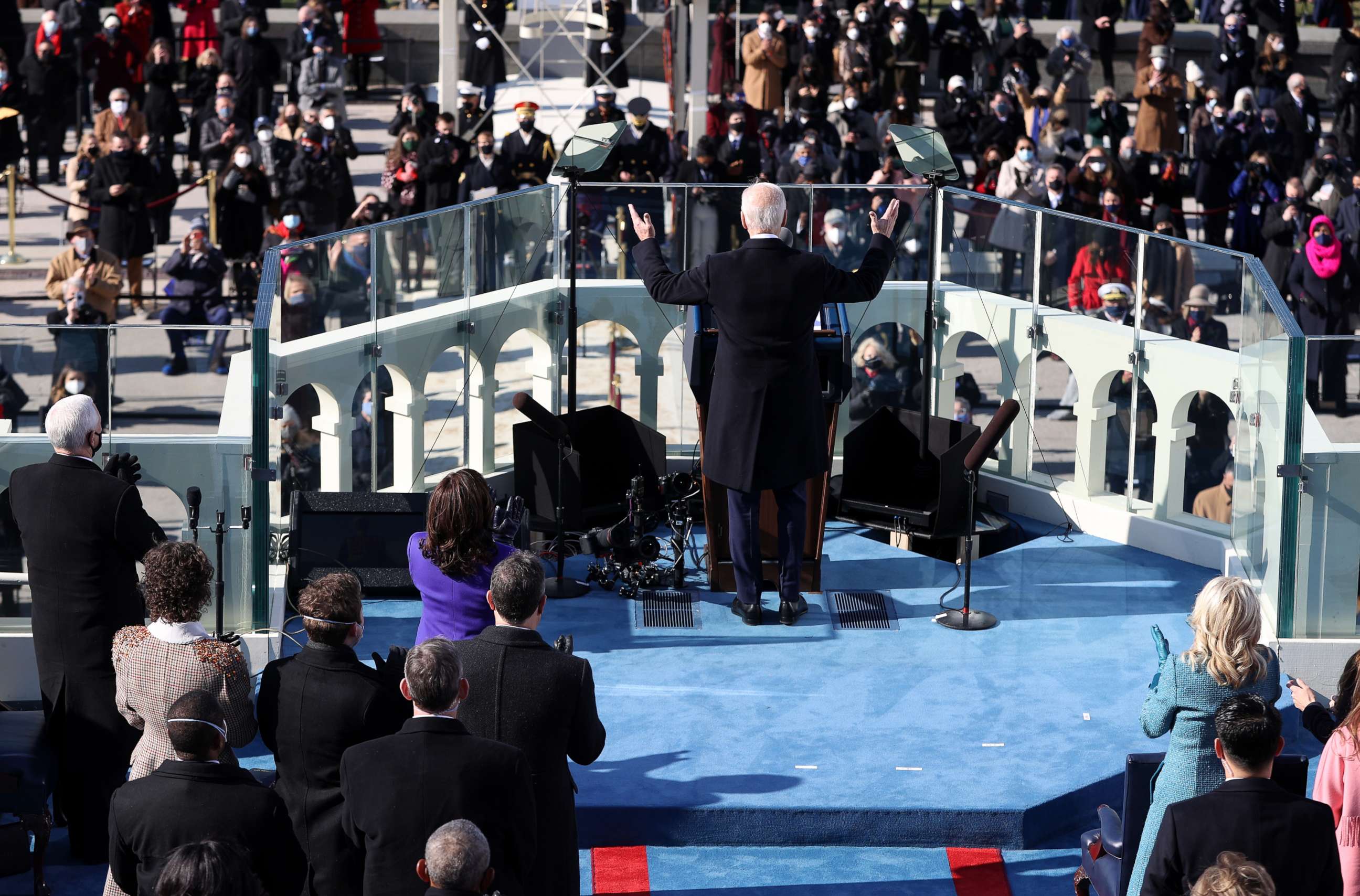
"Here we stand, looking out on the great mall where Dr. King spoke of his dream. Here we stand where, 108 years ago at another inaugural, thousands of protesters tried to block brave women marching for the right to vote. And today, we mark the swearing of the first woman in American history elected to national office, Vice President Kamala Harris."
The pomp and circumstance surrounding Biden’s inauguration looked much different from those of years past, a result of the series of unparalleled challenges the 78-year-old faces upon taking office: the COVID-19 pandemic that has claimed the lives of more than 400,000 Americans and has left families across the country struggling economically in its wake, and a divided nation reeling from the attacks on the U.S. Capitol earlier this month following the contentious election.
For Biden, the 2020 campaign started with division.
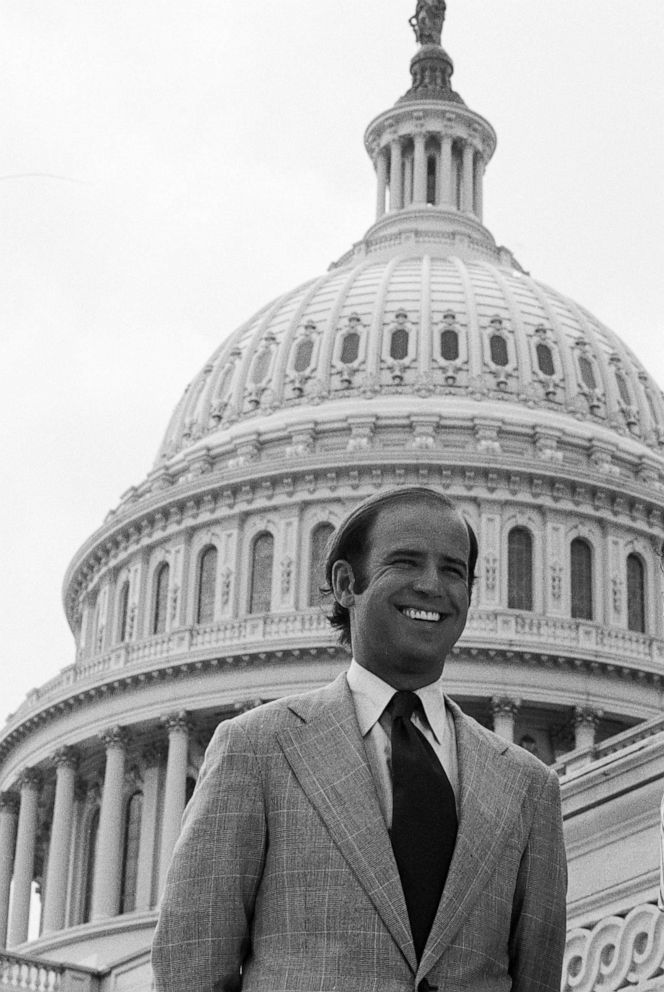
Following the attacks in Charlottesville, Virginia, in 2017 that saw a deadly clash between white supremacy groups and counter-protesters, Biden said he was compelled to take on the "battle for the soul of the nation" with his third run for president.
"That’s when we heard the words of the President of the United States that stunned the world and shocked the conscience of this nation. He said there were ‘very fine people on both sides.'" Biden said of President Donald Trump in a video launching his campaign in April 2019.
"[I]n that moment, I knew the threat to this nation was unlike any I had seen in my lifetime," he continued.
After running on a platform of bipartisanship and unity, Biden will now launch his presidency once again dealing with division in the fallout of the Trump presidency.
Biden was sworn in on the steps of the Capitol that two weeks prior were littered with pro-Trump rioters storming the building, an event that vastly increased the security footprint around the inauguration, with 25,000 National Guard troops deployed in the nation’s capital.
But while Biden seeks to turn the page with his presidency, he’s also seeking to undo some of the signature and controversial elements of his predecessor's legacy.
Biden’s administration plans to hit the ground running. The president-elect will sign 15 executive actions on Inauguration Day alone, including actions reversing Trump’s ‘Muslim Ban,’ stopping funds used to construct the border wall, rejoining the Paris climate agreement and fortifying the DACA program Trump tried to dismantle.
Biden will also send a comprehensive immigration bill to Congress during his first day as president, pitching an eight-year pathway to citizenship for undocumented immigrants that stands in stark contrast to Trump’s approach to the issue that animated much of his presidency.
However, when Biden enters the Oval Office, perhaps the most pressing issue he will face is grappling with the COVID-19 pandemic that upended the 2020 campaign and drastically altered Biden’s inaugural ceremonies.
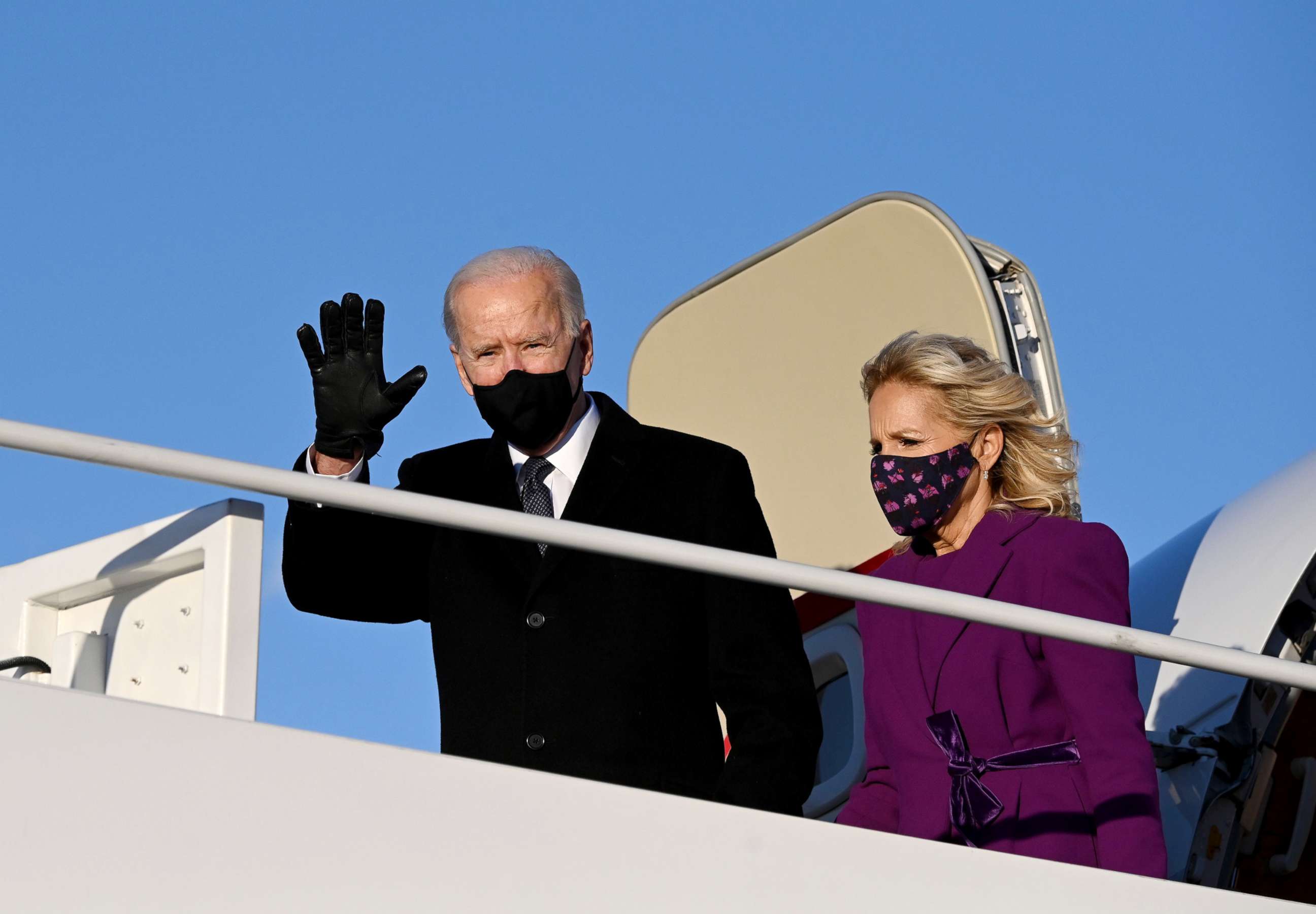
In his first event after arriving in Washington for inauguration Tuesday, Biden took part in a somber memorial for the hundreds of thousands of Americans killed by the virus, a significant departure from Trump’s approach of downplaying the pandemic.
"To heal, we must remember,” Biden said. "It’s important to do that as a nation. That’s why we’re here today. Between sundown and dusk, let us shine the lights in the darkness along the sacred pool of reflection, and remember all whom we lost."
COVID will play a role in Biden’s other celebrations as well. The incoming president will place his hand on his family bible to take his oath without thousands gathered in the nation’s capital to watch history take place. Instead, Biden will overlook a sea of nearly 200,000 flags across the National Mall, representing those unable to travel for the event.
Before getting into office, the president-elect pitched a nearly $2 trillion rescue package to give relief for those continuing to struggle due to COVID-19, including $1,400 direct payments to most Americans, and creating a national vaccination program to meet his ambitious goal of administering 100 million vaccinations in his first 100 days in office.
But the massive legislative effort will pose a challenge to the message of bipartisanship and unity Biden pitched on the campaign trail and beyond. The new president will face the challenge of winning over Republican support for the measure in the Senate, amid a looming impeachment trial of his predecessor that could deepen existing divisions in the country.
It's a challenge Biden seems willing to accept.
As the book closed on the Trump presidency, Biden sought to begin his on a bipartisan note: Democratic and Republican congressional leaders joined him, at his invitation, for morning Mass before he took the oath.




